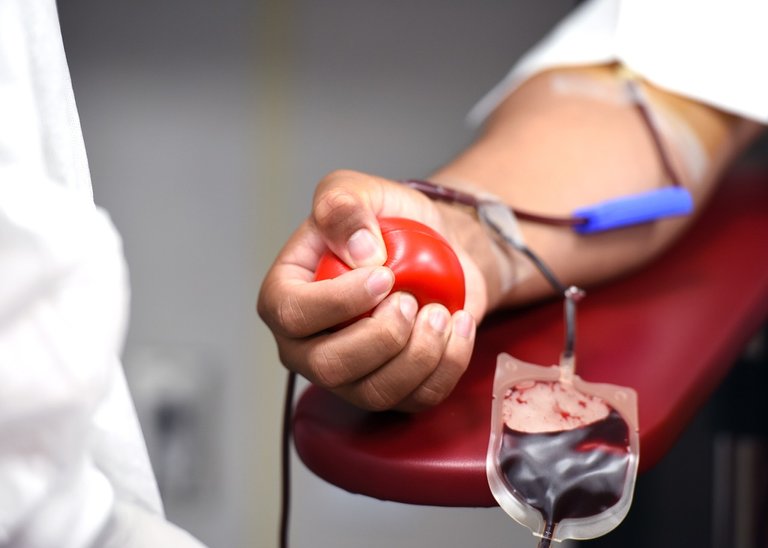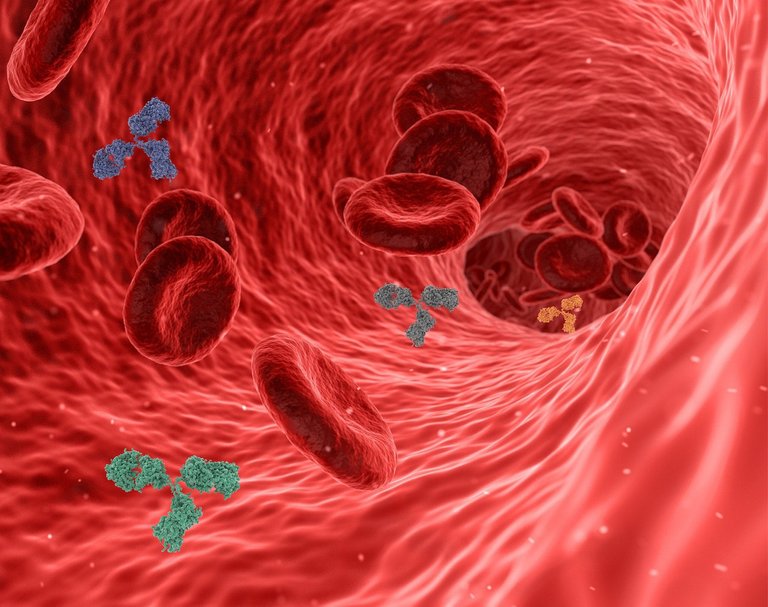Rare Blood Types Challenge with Transfusion
Let me start this post by asking a few questions, and I would appreciate it if you give answers to them, either in the comment section or you just respond to them. Do you donate blood? How often do you donate blood? Why do you not donate? and at what point do you feel morally obligated to donate blood to help a person? While these questions can be regarded as ethical, it is up to you to donate blood whenever you feel like it. Blood donation is something that is needed beyond the casual thought of donating, as it would save lives but do you know that not everyone can get blood readily available at the hospital?
In University, I had a friend who was very cautious of his activities, such as tedious sports, handling sharp objects that could lead to injury, and even was always scared to travel, although he still did. He would say that his mum cautioned him to be extra careful because his blood type was rare. At one point, I was forced to ask him what his blood type was but he wasn't going to discuss it. Let me guess, you are starting to wonder what is truly special about his blood type? As we continue, you would understand why he was really careful with everything around him.
For easy understanding of why we should donate blood regularly, about 118.5 million blood donations are collected yearly, globally, and for further understanding, about 41,000 units of blood are used daily in the United States. While so many people leave healthy, people suffering from polycythemia vera want to donate their blood, but it doesn't meet the criteria for blood donation even when they have to lose blood on a weekly or monthly basis. The blood donated is used for blood loss during operations, traumatic injuries, blood loss from childbirth, people who suffer from Sickle cell anemia, and so on.
It would have been easy for blood donations and transfusions if we all had the same types of blood, but this isn't true considering the fact that we do not have the same blood type. We are familiar with the regular blood type, and there is a possibility that you reading this post have one of these blood types "O+, AB-, A+, O-, and we use the ABO and the Rh classification of blood to identify our blood group but in reality, there are over 30 different classification system of blood, to be precise, 33 classification system of blood types ranging from Duffy system, Colton System, Kidd system, Kell system, Lutheran system and so on. I am sure a lot of people haven't even heard of these blood type classification systems before but then, we are conversant with the ABO and Rh classification.
With the ABO system, blood is classified based on the presence of antigens which are A and B. The blood can have either of them, both of them, or neither of them. These antigens are glycoprotein markers in the cell membrane which allows the immune system to identify foreign cells from their own cells. People with A blood type have the A antigen found on the blood cells and the blood serum has an anti-B antibody. For B blood type, it is the vice-versa of A. People with the O blood type do not have either of the antigens but have the A and B antibodies in their serum. Donating blood that is incompatible would lead to an ABO incompatibility reaction where there would be agglutination and clumping of the Red blood cell after which the immune cells would attack the transfused blood cell and this can be life-threatening.
Asides from the ABO, there are other antigens that need to be checked before blood donation is done, and that is where the Rhesus Factor (Rh) type of blood classification comes in. With the Rh system, there are over 40 antigens but the Rh-D antigen is the most significant of them all since it produces an immune response in people who do not have the antigens. With that, we have the "O+, O-, B+, B-, A+, A-, AB+, and AB-. where positives can only donate to positives and O- can donate to everyone but can only receive blood from itself. I am O-, and would be able to donate blood to anyone, but I can only get blood from a person with O-.
While the D antigen is important, other antigen matters too but for most humans, we have these antigens in our blood. One common antigen that you wouldn't worry about when giving blood or receiving blood is the Vel antigen. This is because almost everyone has this antigen unless you fall into the 1 of 5000 people who do not have this antigen worldwide. While this blood type is rare, there are still other blood types that are rarer, with the rarest being the Rhnull blood group type.
People with the blood type Rhnull are the people with the rarest blood. It is said that only 1 in 6 million people have this blood type. For easy explanation, in a state like Lagos, Nigeria with a population of about 25 million, that means that only 4 people would have this type of blood, and when it comes to the world, there can be less than 50 people who have this blood type. They do not have any of the numerous Rh antigens present in their blood. I cannot imagine how these people would feel because I am not in their shoes, but it will be a combination of mixed feelings, seeing that they have a very rare blood type, but at the same time, they are at risk of losing their life because of the unavailability of their blood during events that would require a transfusion to save their lives.
The Rh null blood is special as it can be donated to people who have certain antigens present and absent in their blood without any complication but then, they cannot receive blood from any other person except for the less than 50 people that exist worldwide who can be in different continents, and this can be very fatal for the person as it doesn't get to the recipient. These people most times would have to donate blood for themselves for cases of uncertainties, and while they even have to donate for shelve purposes, their Red Blood Cells can get damaged easily as a result of no antigen causing them to have an increased osmotic fragility.
Although my friend didn't disclose his blood type to me, I can only imagine what would be going through his mind daily, and I personally think it would be a good reason why he is very careful with objects, plays, and even travels. I never pushed for him to disclose his blood type since he wasn't going to talk about it, but I hope he isn't part of the less than 50 people with a Rhnull blood type. Although, throughout our time together as flatmates, he never had a reason to use cotton wool to stop blood as a result of an injury. That is to tell you how careful he is, and from what he say, it is because of his rare blood type.


Yay! 🤗
Your content has been boosted with Ecency Points, by @elity-sitio.
Use Ecency daily to boost your growth on platform!
Support Ecency
Vote for new Proposal
Delegate HP and earn more
Thanks for your contribution to the STEMsocial community. Feel free to join us on discord to get to know the rest of us!
Please consider delegating to the @stemsocial account (85% of the curation rewards are returned).
Thanks for including @stemsocial as a beneficiary, which gives you stronger support.